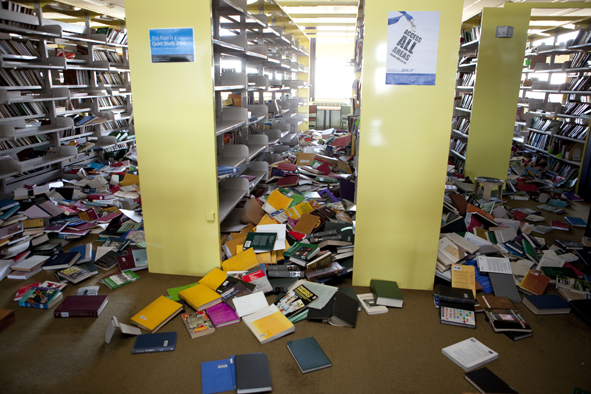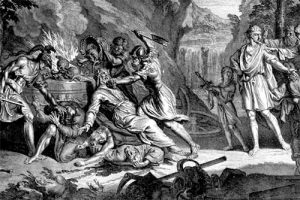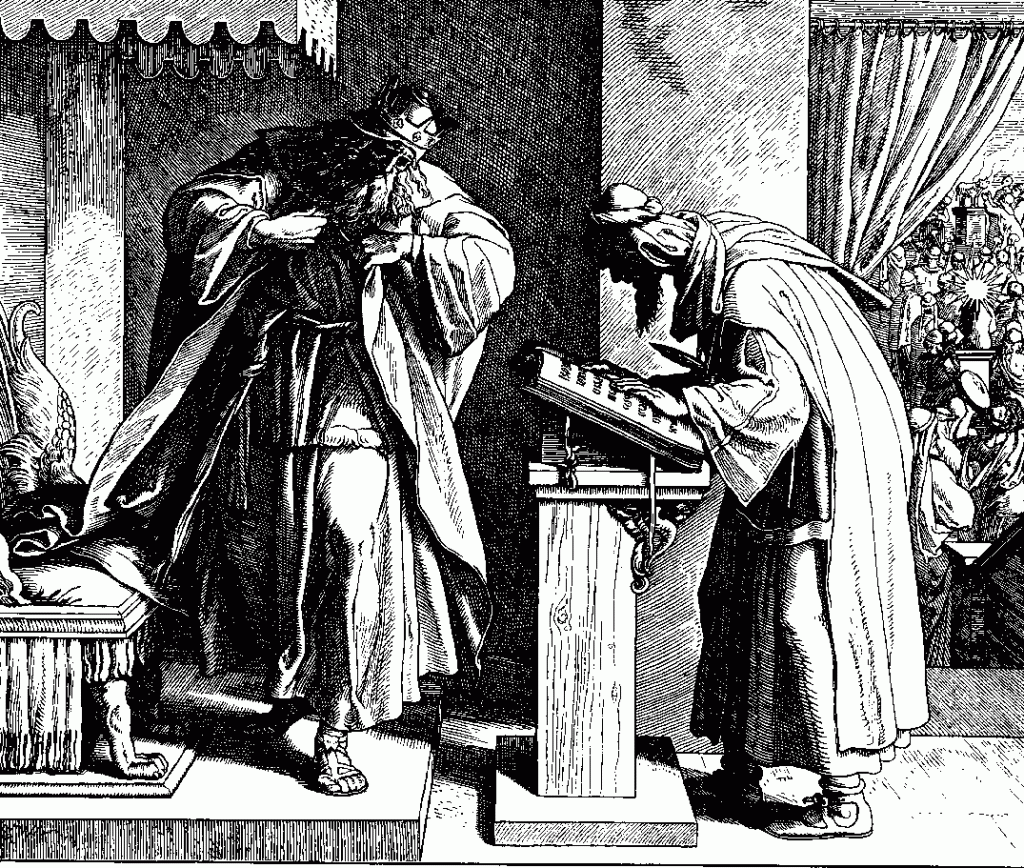Christchurch, New Zealand, recently experienced a 7+ earthquake. A friend who works in the University of Canterbury library sent me this link to show what half a million books look like when thrown on the floor – – – http://www.canterbury.ac.nz/photos.shtml
One illustration of many in the above link:
The problem was that the building was deliberately designed to sway in an earthquake. Now whoever thought of that idea obviously hated librarians and/or libraries.
(I’ve never been able to understand why anyone opts to live and work in an earthquake zone!)
I’m a librarian, but I never see or touch a book. I work in a field that seeks to deliver electronic or digital resources to users online. Is it too idealistic to suggest that it might be more economical in the long term that all those scattered books should simply be picked up and scanned to be available electronically now? Stuff the reshelving by going crosseyed trying to put them all back until the next quake.
<
h4>Related articles
- Christchurch Earthquake Visualizations (gearthblog.com)
- “New Zealand earthquake rips a new fault line across the world… moving one side of the earth 11ft to the right” and related posts (asianenergy.blogspot.com)
- The Canterbury earthquake (marginalrevolution.com)



